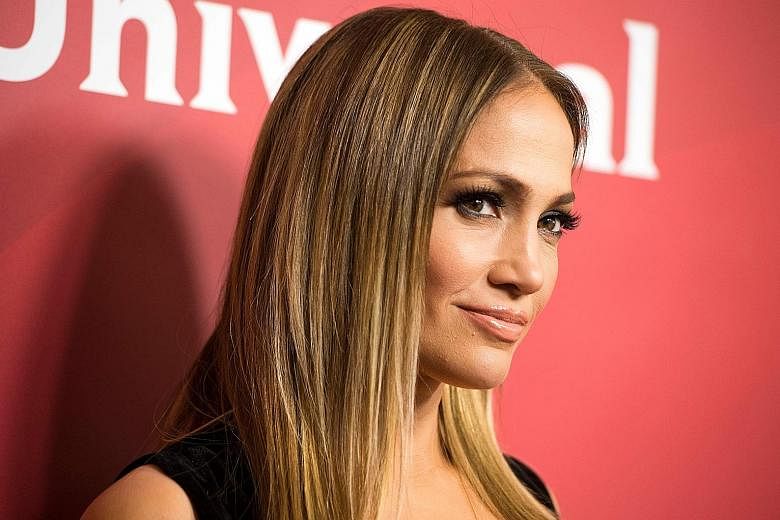LONDON • What do Jennifer Lopez and Mr Stan Kroenke have in common? The superstar singer and majority share-holder of English football team Arsenal have both put money into eSports teams, as the gaming competitions with millions of followers worldwide aim for even greater public appeal.
Lopez is among a team of investors that has put US$15 million (S$20 million) into a team franchise for the new Overwatch League, in which teams from cities such as Seoul, San Francisco and London play Overwatch, a mass-participation shooting game.
The competition, which will be launched next month, also includes Overwatch League team Los Angeles Gladiators, run by Mr Kroenke, a serial sports entrepreneur.
Other top sport stars are investing in eSports franchises too, including Formula One driver Fernando Alonso and former basketball player Magic Johnson.
When the United States-based SportsBusiness Journal released its annual list of the 50 most influential people, 10 were from eSports.
The International Olympic Committee has taken a big step towards recognising the pursuit, opening up a chance that eSports could feature in the 2024 Paris Olympics, two years after it debuts at the Asian Games in Hangzhou.
The global eSports economy has grown by 34 per cent year on year to US$660 million. It will reach US$1.5 billion by 2020, according to Newzoo, which provides market intelligence.
It estimates that eSports attracts an audience of 385 million people, the majority of whom follow the action online - via digital broadcast platforms such as Twitch, which has more than 400 million views a month. There are also sizeable crowds in the real world. The biggest eSports tournament, the Intel Extreme Masters in Katowice, Poland, attracts more than 100,000 fans over three days.
Sponsorship and advertising already account for much of eSports revenue, at 38 per cent and 22 per cent of turnover respectively.
Money flows into leagues, teams and players, but until this year, interest has largely come from information technology/computer-related brands such as Intel and Logitech, or fast-moving consumer goods - staple gamer fuel such as fizzy drinks and snacks.
However, the kinds of brands associated with more conventional sports also woke up to the market's potential this year. There were bookings from carmakers such as Audi and Mercedes-Benz, fashion brands such as Jack & Jones and consumer goods giant Gillette.
All were lured by a lucrative demographic. About eight in 10 eSports watchers are men in their mid-20s who have disposable income and generally shun traditional media.
"We're starting to see the mainstream brands," said Mr James Dean, British head of ESL, the biggest eSports league organiser.
Nielsen data shows a decent return for the commercial backers.
Audi received a return of more than 10 times its investment during the Eleague finals and the DreamHack Las Vegas tournament at the beginning of the year.
Advertisers will not get carried away as eSports is no National Football League or Premier League. But the more popular it becomes, the more credibility it amasses among potential backers.
A good eSports game needs a specific appeal to attract mass audiences, said Mr Michele Attisani, co-founder of gaming platform Faceit. "A top eSports game needs to have a fast-moving mix of strategy and game play to capture a large competitive community."
Popular games include Dota 2, played with two teams of five; and the multiplayer battle game, League Of Legends, which is eSports' biggest game, with 100 million monthly players.
The most successful eSports player of all time is German-Iranian Kuro Salehi Takhasomi, 25, a Dota 2 professional who has earned US$3.3 million so far in his career.
THE GUARDIAN

